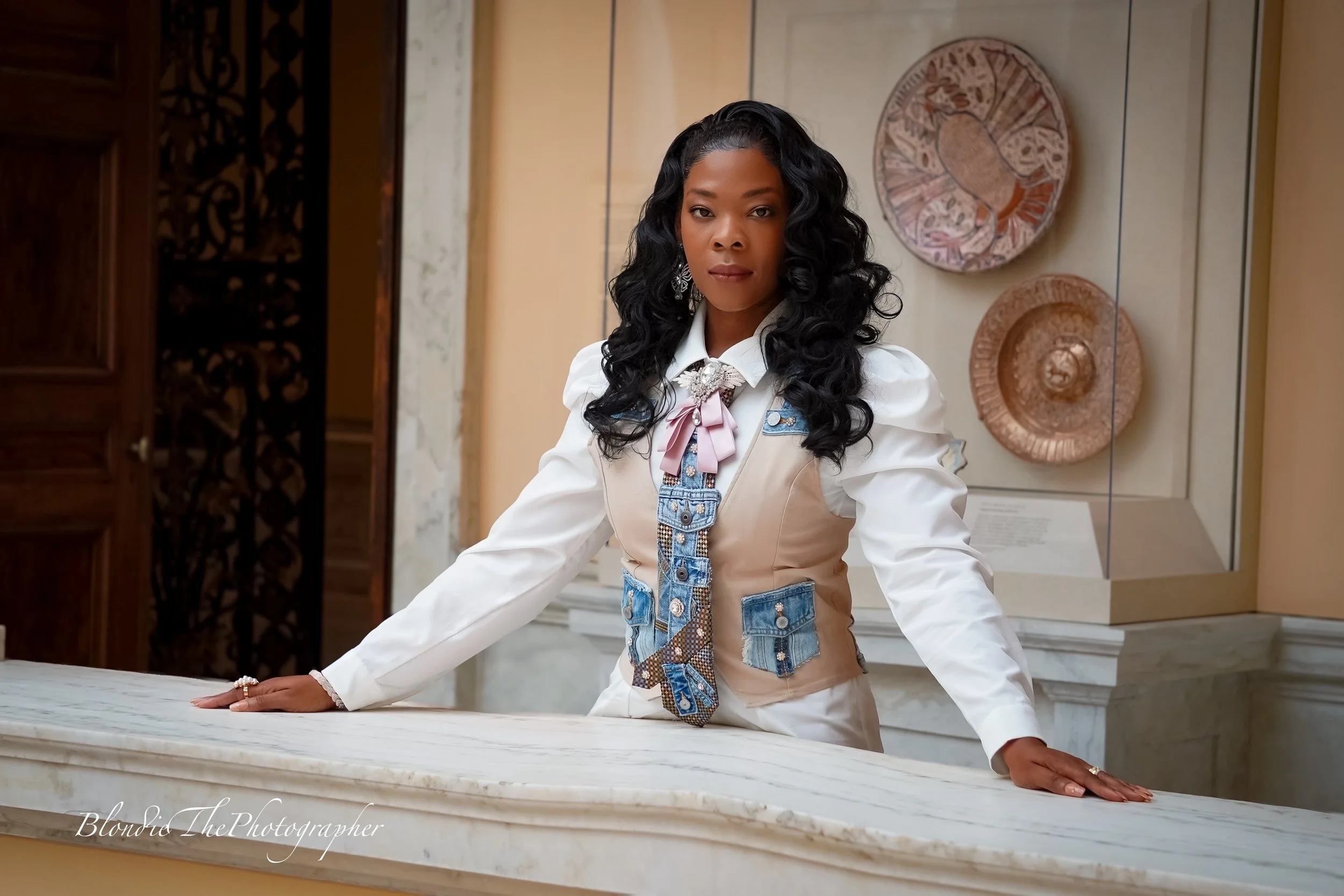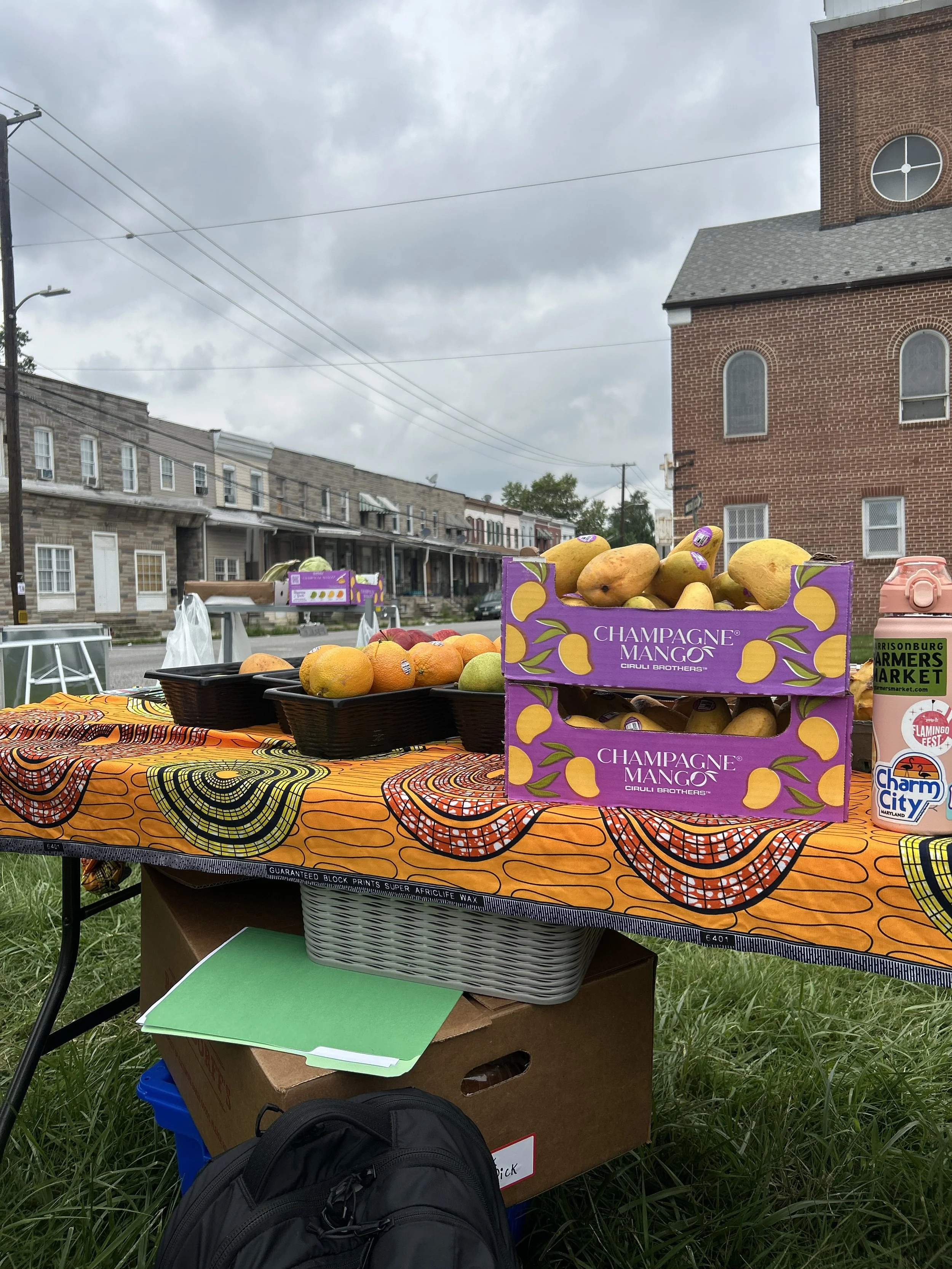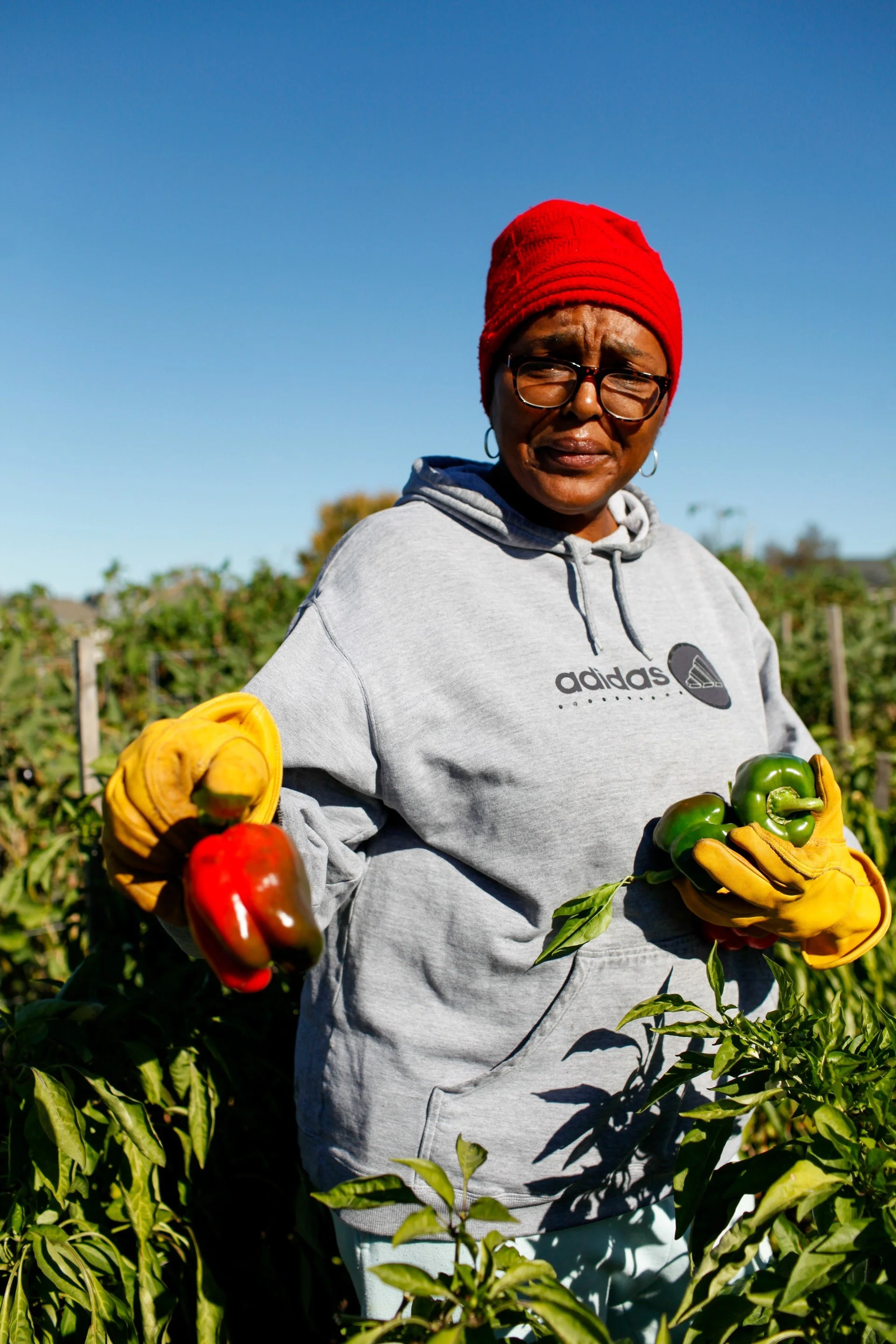THE MARKETPLACE
a food geography storyboard
Baltimore's foodscape is characterized broadly by institutional and municipal bodies as a desolate geography of lack. But what if we mapped our food stories differently? While it’s important to identify the structural violence of food apartheid (the unequal geographic distribution of food that is predicated on systemic exclusion: taking into account race, geography, class, gender, or faith) (1), it is equally important to acknowledge what Ashante Reese calls “black geographic thought" (Reese 2019: 9). At this intersection, Black Yield Institute (BYI) produces theory about food systems to take back control of the narrative, embody self-reliance, and understands the congruity between food and land struggle. And, it is because of this work, and other black-led movements in our historical memory, that neighborhood and community attitudes have ultimately shifted common sense knowledge of how eating, buying, sharing, selling, and cooking food is experienced. This story board is an attempt to situate these experiences in space and place. This project is part of ongoing research that seeks to explore how a person’s experience with and attitude about food is informed by how they move through their environment. This storyboard also shows how attitudes about the foodscape differ and overlap. The stories, of which each represent the communities in which BYI does work (2), were situated in a temporary art installation titled “The Marketplace" to help us tell stories of abundance, the way mapping “lack” cannot. Notes
1. The term “Food Apartheid” was coined by activist Karen Washington. This definition is paraphrased from her interview with Guernica Mag in 2018.
2. The names of anonymous participants have been changed to protect their identity.Reference
Reese, Ashanté M. 2019. Black Food Geographies: Race, Self-Reliance, and Food Access Washington, D.C. University of North Carolina Press.MOUNT CLARE
Kintira Barbour
Kintira Barbour, of Mount Clare’s Community Association, is a “proud East Baltimorean, through and through.” After living in her post-grad city of Philadelphia back to Baltimore, she returned to live in Mount Clare, and set her mind to community revitalization projects that would seek to address the same systemic disparaties she was told as a child to escape from. In 2021, BYI was searching for new land after being forced out of the farm in Cherry Hill. While losing CHUCG represented a true loss in the struggle for black-owned and operated farm land, the move to Mount Clare opened the door for a community who had long been hoping for such an opportunity. Barbour explains how having access to fresh food is vital for a person’s ability to thrive, but it has bigger implications for overall health beyond just diet. “It’s bigger than food,” she says.“We have to learn how to navigate and exist together in the safest way possible... So when you think about places and organizations like BYI, where it's much deeper than just food, you're talking about meeting basic human needs... helping with mental stability, early childhood development, the spiritual and the mental aspects, so having [BYI in Mt. Clare] is much more than just giving away a food basket or some fruits and vegetables. It's much deeper than that.”
Photo courtesy of interviewee.
CHERRY HILL
Community member
Jim grew up in Cherry Hill in the 70's. He recalls how his community simply had everything he needed. “I wouldn’t change it for the world,” he told me, recalling fondly his memories of crabbing in the harbor with his friends and uncle, to energetic Operation CHAMP Recreation Days with boundless fun and music. When Jim started working at the Baltimore city's SafeStreets program as a Violence Prevention Coordinator, he had a personal drive to address youth violence in his community through peer mentorship. However, currently this outreach program is at a standstill. It’s disappointing, he said, since building community safety starts with social wellbeing. He also sees that resilience comes from collaborations between those fighting for safe streets and food sovereignty - the two go hand in hand.
“I hope [BYI] is successful and bring us a market to the neighborhood... But yeah, that's how we intersect it, right, we both pushing for some positivity in the same community. It also goes beyond community in that sense.”
Photo taken by author.
CURTIS BAY
Marketplace customer
Annie, a new customer at BYI’s marketplace, explained how accessing fresh and healthy food in her neighborhood is a challenge, especially for her family members that have diet and environment-related health issues. There is no grocery store in walking distance, so she or a family member has to call a ride share, which can be expensive, and cuts into their food budget even more. She was “ecstatic” that BYI had set up the market in Curtis Bay, and she feels hopeful that this kind of access to fresh food is possible.
Sitting down for our interview, her shopping bag was full of collard greens and a jar of manuka honey. She learned about the market through word of mouth when her daughters passed by a week earlier and came home with giant watermelons. She shared with me her valid anxieties based on past food distribution services, but none have been community based. She hopes the Market is able to keep up it’s customer base and stick around.“That’s what my nervousness is... we’ll get something good in this neighborhood, and then it goes away so fast. I think what would really help is more people coming. I’m ecstatic about the fact that its here.
Photo taken by author.
CURTIS BAY
Rodette Jones, Filbert Street Garden
Rodette Jones, Farm Manager at Filbert Street Garden, grew up in Cherry Hill and has lived in Curtis Bay for 28 years. Her journey to community food advocacy was inspired by her grandmother's traditional cooking, and her own experience gardening during the pandemic. Such advocacy once resulted in successfully preventing the city from turning the garden into a water filtration plant, ultimately obtaining a deed with the help of a council member. She emphasized the importance of food knowledge preparedness for uncertain futures: that is, passing down knowledge to young generations through cooking and gardening. Rodette partners with other black-led farming groups in the city, such as Black Butterfly, Farm Alliance of Baltimore, and BYI.“A lot of kids... with my cooking demonstrations, get to experience different varieties of food, and they're so excited, you know, ‘Ms. Rodette, can I have that recipe, can I take it home?’ We gonna cook it later.’ You know, that's the kind of responses that I love to hear. That makes me happy, that they can share it with their parents, and maybe they can fix it for their parents... It's the resources and stuff that they're accessible to that can go a long way, because it has to be taught, you know. So, that's teaching… teaching them. It's good, good thing.”
Photo courtesy of interviewee.



